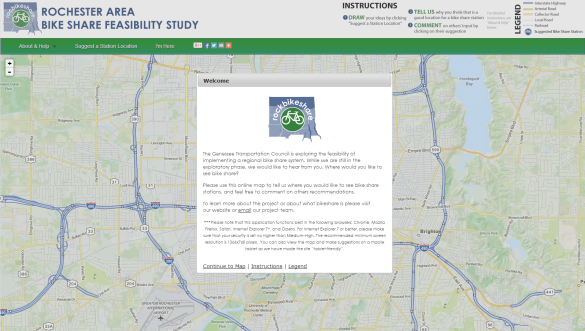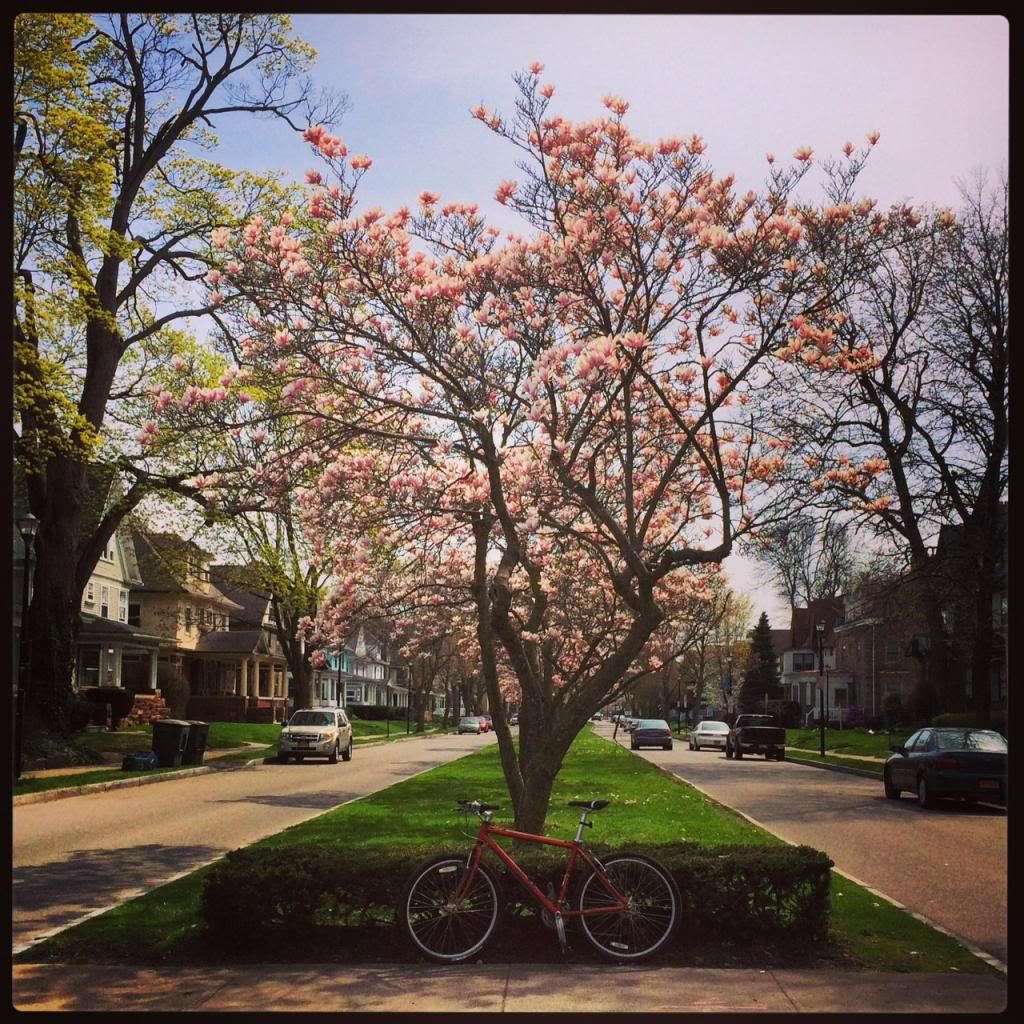 A feasibility study released Wednesday indicates that a bike-sharing program could be effective in Rochester.
A feasibility study released Wednesday indicates that a bike-sharing program could be effective in Rochester.
“Through a comprehensive analysis of population and employment trends; evaluation of existing plans and regulations; review of existing conditions; and a comprehensive stakeholder and public engagement process, the implementation of a bike share program in and around Center City Rochester has been found to be feasible,” the report’s executive summary reads. The study was commissioned by the the Genesee Transportation Council.
The study recommends that a program be launched first in the Center City and East End, though it could later be expanded to adjoining neighborhoods and even satellite locations in the areas of the Rochester Institute of Technology’s Henrietta campus, Brockport, East Rochester, Pittsford, Fairport and Canandaigua.
The council suggested starting with 250 bikes, aiming for an eventual total of about 1,000 bikes across the entire region.
“It’s very clear that what we’re looking at is incredibly reasonable,” said Rich Perrin, executive director of the Genesee Transportation Council, quoted by the Democrat and Chronicle Jan. 27.
Benefits of Bike Sharing
Bike sharing programs have been implemented in about 75 areas across the United States, including in other cities that experience harsh winters, such as Minneapolis. The typically cited benefits include giving residents and tourists easy and affordable transportation options, and better linking common destinations to public transportation routes.
The new report listed four specific policy goals a bike sharing program could support: increased mobility for students, workers, residents and tourists; increased equity in terms of access; increased economic attractiveness of the city as a place to live and do business; and increased promotion of bicycling to improve air quality and safe cycling opportunities.
Bike culture in Rochester is small, but it’s growing, advocates say. And the growing population of young residents in the suggested initial launch area should make bike sharing a success there.
There are also challenges to face. One major concern is that although there has been an effort to make the city’s streets more bike-friendly, there’s still a long way to go. That’s both a safety and a legal concern, as most personal injury lawsuits filed in the U.S. have to do with auto accidents (including car-bike collisions).
Paying the Bill
A question no doubt on many residents’ minds is how much such a system would cost. Current estimates put the first-year cost between $890,000 and $1.4 million, and a five-year total at up to $3.3 million.
The study’s authors have recommended a public-private partnership that would kickstart the program, as well as sponsorships. Bike share subscriptions could be priced at $85 per year or $8 per month, or rides free for the first 30 minutes and $4 for every half hour after that.
The study mentions several possibilities for ownership. The system could be owned by a city or regional agency but operated by a private company; it could also be owned and/or managed by a nonprofit organization.
Perrin said that it’s important to invest in projects that can take pressure off Rochester’s strained infrastructure and offer more transportation options to people trying to drive less.
“We can’t just look at it as we’re going to limit ourselves to maintaining our 20th-century infrastructure,” he commented. “We need to move forward.”
Visit Rocbikeshare.org for more information about how you can help bring a bike share to Rochester!





No Comment